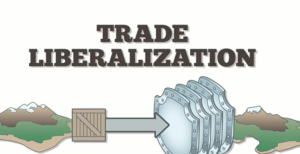Image source: shajani.ca
Tax-Free saving Account (TFSA) is an all-purpose way to invest and can be used to save for any financial goal. TFSA is available to Canadian citizens aged 18 and above and the amount can be accessed at any time without any penalty.
TFSA offers a lot of benefits to people who want to use this savings plan and have tax free income. There are also some limitations you have to consider before opening the TFSA account.
Pros:
1. Flexible: This tax-free saving plan allows you to withdraw the money at any time without penalty and this will earn you less interest in the account.
2. Tax-free income: Opening an account in this investment plan allows you to earn money in a tax-free manner. The money contributed to your TFSA account earns some interest and the interest is not taxed.
3. Earn investment income: The capital gains, dividend income, and interest that you earn within this account is not subjected to tax.
4. Carry forward the contribution limit: Each account holder is not supposed to contribute more than $5 000 per year and this limit can add up over time regardless of whether the money was contributed or not. This amount is forwarded to next year’s tax system.
5. Contribute to spouse TFSA: If you earn more than your spouse, you can help contribute to their TFSA account. The total contribution in the account should not exceed the maximum allowed.
6. A wide range of investment options: TFSA has a wide range of investments which includes mutual funds, stock bonds, guaranteed investment certificates (GICs), and cash.
7. No requirements: No income required to receive TFSA contribution room since TFSA contribution is not determined by your employment income. Anyone can contribute.
8. No age limit: The starting age for contribution is 18 years and no age limit. You can continue contributing after 71 years, unlike the RRSP.
9. No impact to your government benefits: The income you receive or withdraw from your TFSA account doesn’t affect your eligibility to receive income-tested benefits from the government like Canada child tax benefits, guaranteed income supplement or the old age security benefits.
10. Retirement income and estate planning: TFSA is a short-term savings account and due to their tax-free withdrawal nature, they are used as a great tool for retirement income and estate planning.
Cons:
1. Yearly contribution limit: Each year TFSA account holder should contribute a maximum of $5000 and this limit adds up over time whether the money was contributed or not.
2. Opening delays: Sometimes there are account delays forcing a potential TFSA account holder to wait for long before the account becomes active. This only happens with TFSA account type.
3. Penalties: Any over-contribution attracts a penalty of 1% of the highest amount you contributed in the month and for each month you have over-contributed.
4. No creditor protection: TFSA assets are not protected from the creditors in case of bankruptcy or after financial judgment that resulted from any legal proceedings against the account holder.
5. Individual account: TFSA is a single owner account and only the account owner is allowed to make tax free contributions and access the account.
6. No immediate tax reduction: You can’t lower your taxable income since TFSA lacks immediate reduction on taxable income, unlike the RRSP which you can claim it as an income deduction.
7. No tax refund: TFSA does not contribute towards tax refund, therefore, you cannot invest on the refund and enjoy compound interest.
8. The contribution limits not enough: If you have lots of income to invest, the annual $5000 contribution will be very restrictive to you, unlike the RRSP which allows you to contribute up to 18% of your income.
9. High fees: If you put money in the wrong type of investment, you end up losing money in the long-term. Mutual funds with high MERS can lead to a lot of losses and if you make various trades, you may pay lots of commission and transaction fees.
10. Capital losses: Capital gains are tax- free and you can’t claim a capital loss in case you lose money in your TFSA account.



